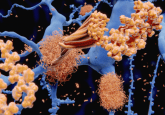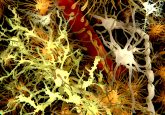BMAA and neurodegenerative diseases – what’s the evidence?

In a culmination of work that began over 20 years ago, inspired by visits to remote tropical islands, last month saw the publication of a study providing the first strong evidence for a link between exposure to an environmental toxin, termed beta-N-methylamino-L-alanine (BMAA), and Alzheimer’s-like pathology in the brains of both humans and animals. Although associations between environmental toxins and neurological conditions are not a new phenomenon or suggestion, especially for lead author and renowned ethnobotanist Paul Alan Cox (Brain Chemistry Laboratories, Institute of Ethnomedicine, WY, USA), the findings highlighted new questions regarding the role and contribution of our environment...





